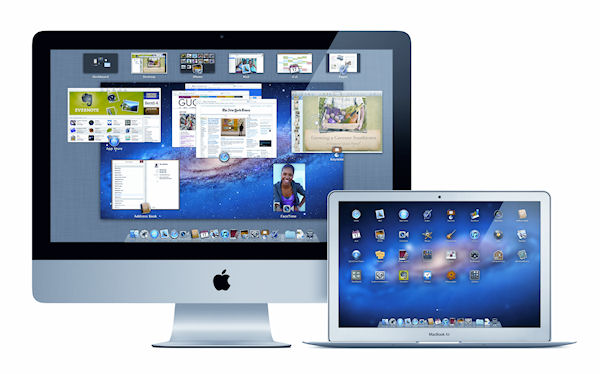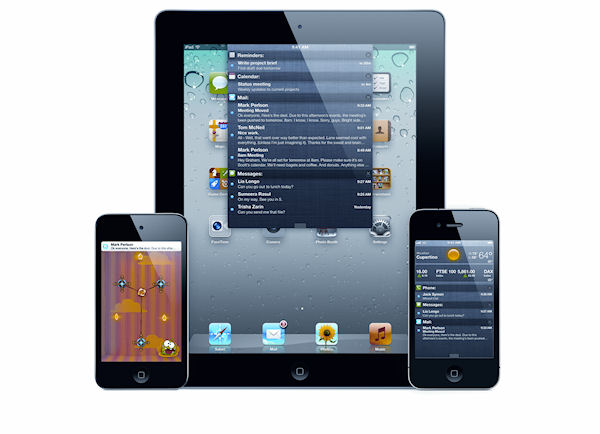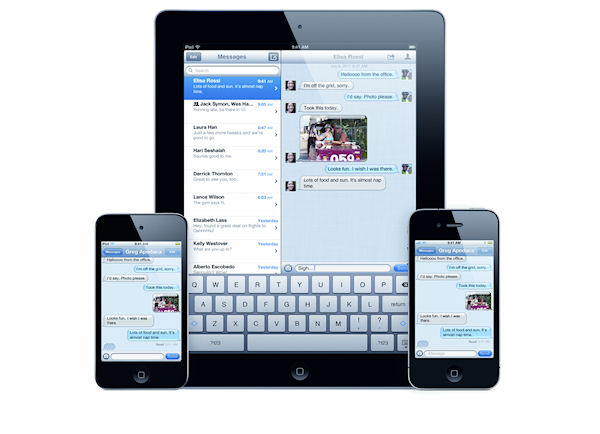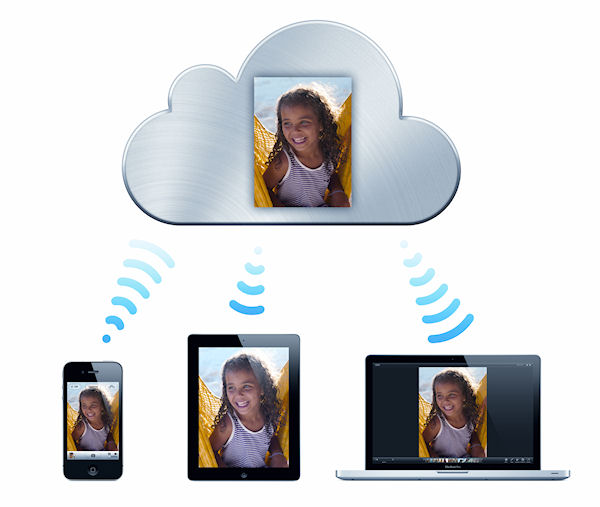Building a moat
It's been said many times before, but iOS vs. Android is very comparable to Mac OS vs. Windows in so much as it's a closed, controlled platform competing with a much more open, diverse one. The closed system has many advantages when it comes to stability and optimisation but, as the end of the day, it's closed.
The big difference is that Apple has a much stronger position in mobile than it ever had in PCs, and yesterday's software launches were as much about bolstering that position, and defending Apple from competition, as it was changing everything...again.
I've included a bunch of screen-shots below that I think illustrate what a defensive set of launches this was. Firstly MacOSX Lion has many new features that bring it closer to iOS in terms of look, functionality and user experience, much in the way Microsoft seems to be doing with Windows 8 and WP7.
The image below shows an iMac with ‘Mission Control', which seems to bring widget functionality to many apps, while the MacBook is displaying the ‘wall of apps' paradigm we've all become familiar with.

Onto iOS 5, there's a new bar at the top of the screen. Being Apple is has to have a Product Name and this one's called Notification Center. In many ways it seems designed to provide similar functionality to what's already available on Android - the pull-down bar at the top - albeit with a bunch of Apple stuff too.

And then we have iMessage, which is being viewed universally as very bad news for RIM. BlackBerrys have been a surprising success among younger consumers, mainly due to the unlimited free instant messaging offered by BBM. Now there's an alternative on a sexier platform and many may defect.

Finally there's iCloud. Jobs admitted MobileMe was a failure and that iCloud is, in part, resigned to remedy that. Such contrition is commendable, but given that MobileMe required a subscription, Apple will need to make sure loyal paying customers don't feel ripped-off.
BBC tech correspondent Rory Clellan-Jones tweeted during the keynote "MobileMe ceases to exist today, says Steve Jobs - err, I paid for an annual sub in February??!!" While a friend of mine, who's a big Apple fan, emailed me after reading my initial report: "So what about the poor f*ckers who have been paying for it up till now???"

Jobs realised a long time ago that helping people consume their content can play a big part in persuading them to buy products. While all the cloud syncing stuff will add to the appeal of the Apple ecosystem, the iTunes in the Cloud is also a defensive move in response to the activity Amazon and Google have displayed in the cloud music game.
The trump card is iTunes Match, which enables people to replicate their entire music collections in the iTunes cloud, even if they haven't acquired the music via iTunes. This seems to even include tracks you haven't paid for at all, and the key element is an annual fee of $25, which is presumably levied on behalf of the music rights holders.
This seems like quite a small amount of money to compensate the music companies for all the music that won't be bought in duplicate as a result, but then again Apple is better positioned to levy this free than its competitors, as Apple customers are already so used to handing over cash to it. Amazon also has good commercial lies with consumers but Google's ‘give it away for free and sell ads against the traffic' model doesn't look so well suited to this.
There were many more new features in Lion, iOS5 and iCloud, such as deep Twitter integration into iOS that will allow apps to be built with a seamless connection to Twitter, but the features I've mentioned illustrate what a strong defensive move this was from Apple. This isn't the 90s - Apple already has a very strong position - so while it needs to keep innovating, its focus will probably remain defensive for the time being.













